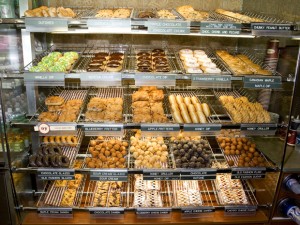It’s a fact that intelligence combined with people skills will lead to success. People skills (essentially emotional intelligence) can be explained through organizational behaviour. Many people underestimate the importance of organizational behaviour; which encompasses the appropriate way to interact with your colleagues: professionally and effectively.
In this article, it mentions 20 skills that people have that is beneficial in order for them to advance in their careers. This list comprises of strong communication skills, patience with others, the ability to trust others, and so on. Many of these skills may seem obvious and straightforward, yet studies show that a huge percent of the working population do not possess them.
I completely agree with this article; I believe that in order for people to be successful, they need to find the balance between intellectual and emotional intelligence. There’s no sense in being top student of the class yet not possessing the skills to interact professionally with fellow students and future employers. This is why the program at Sauder is so beneficial and eye-opening because classes like COMM101 teaches students the importance of being able to engage with others and to conduct themselves appropriately in every situation.
http://www.forbes.com/sites/jacquelynsmith/2013/11/15/the-20-people-skills-you-need-to-succeed-at-work/






